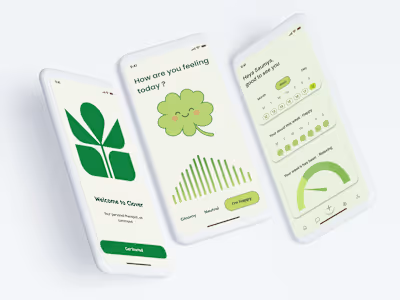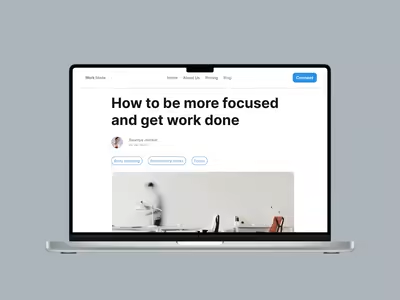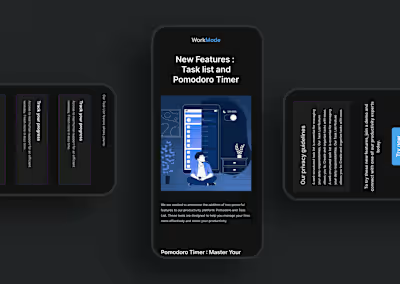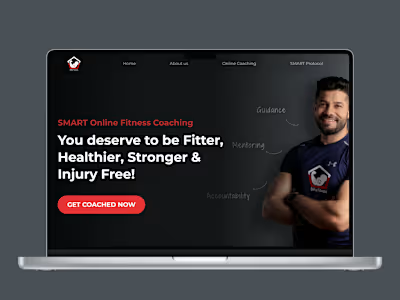Clover - AI-Powered Mental Health App Design
Clover - Mobile App
Designing Clover - a HIPAA-Compliant mobile app that uses AI to act as a personal therapist, offering real-time mood tracking, adaptive recommendations, and mindfulness tools. Designed with a calming monochromatic palette, it helps users manage emotions while giving startup founders insight into scalable, AI-driven mental health solutions.Client: Clover, a pre-seed mental health AI startup
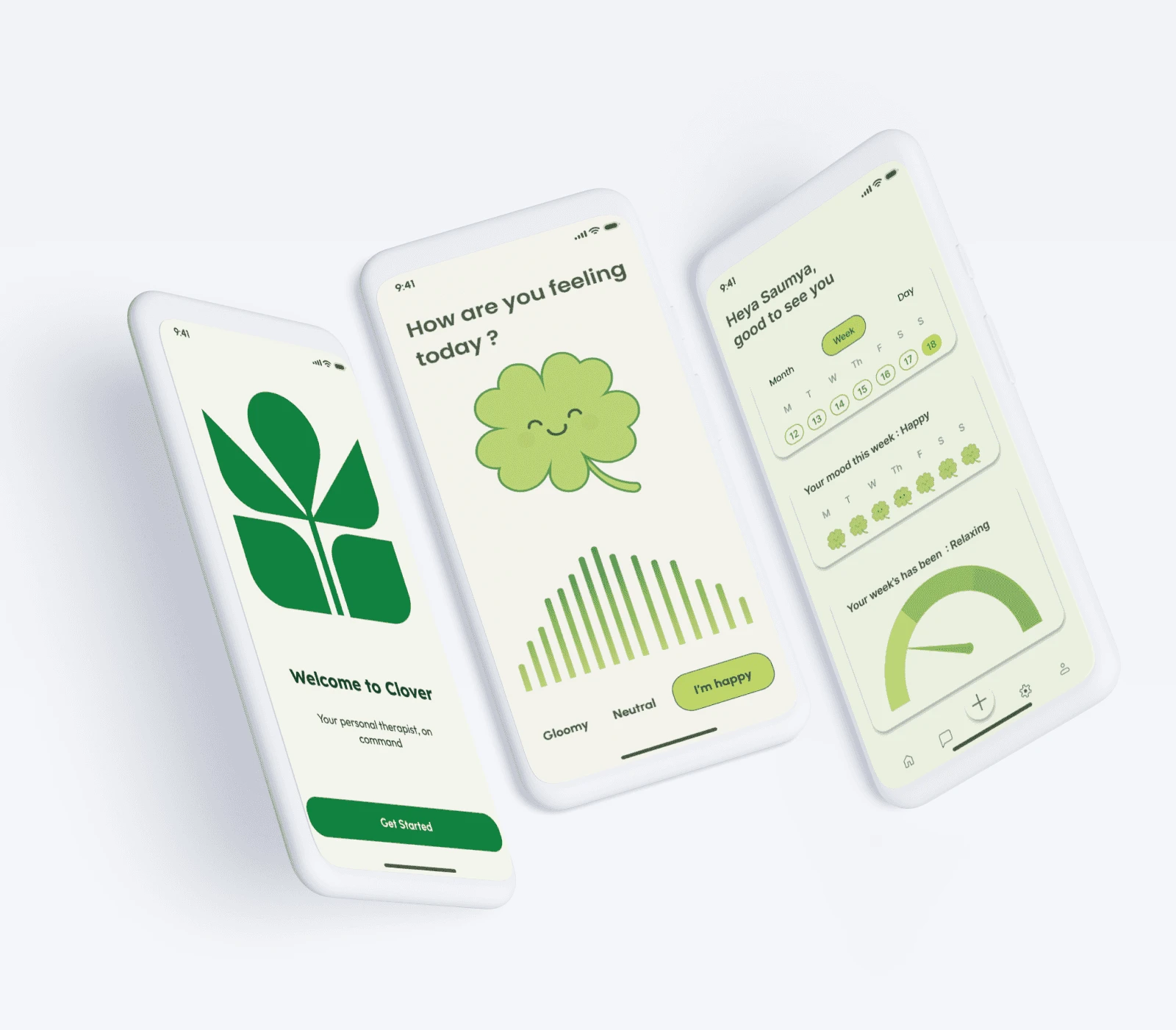
Clover App mobile screens
Industry: Healthcare and Wellness, Mental health
Timeline: 1 week
My Role: Lead Product Designer
Live project link -
Problem Statement
When I first sat down to design Clover, I realised something was missing in many AI-mental health apps: adaptation in real time. Most tools let you log your mood once a day, maybe journal or meditate on demand, but they don’t respond to the subtle fluctuations : the in-between moments that build up. Founders in this space often talk about engagement, retention, scaling, but behind those numbers are users who want to feel understood in the moment.
My challenge was to make an app that strikes a balance between accessible self-care tools and secure, clinical-grade data handling. The challenge was to design a patient onboarding flow that felt warm and supportive, while rigorously ensuring data privacy and building immediate trust with users who may be sharing sensitive mental health information.
Clover is a concept project that aims to fill that gap: an AI-powered personal therapist that customises itself to what you need - your behaviour, your wants, your patterns - as they evolve. It’s designed with a monochromatic palette to reduce cognitive load, minimise distraction, and help users focus on self-reflection rather than colours or flashy UI. The core challenge: how do we build an interface that’s both minimal and deeply responsive.
Understanding the User
The target users were people navigating mood fluctuations, stress, or ongoing symptoms such as anxiety and low motivation.
From my research, three pain points kept recurring:
Logging moods feels repetitive, and many apps don’t show clear value beyond data collection.
Recommendations often feel generic, leading to low engagement and eventual abandonment.
Visual overload in some apps (multiple colours, notifications, gamified elements) can distract from the core purpose of self-reflection and support.
These insights shaped Clover into a product where the design language is quiet and the system intelligence is active.
Data privacy and Trust
Most health apps feel either cold and clinical, or they’re so casual they make you wonder if your private data is being sold. For someone already feeling stressed or anxious, that uncertainty is enough to make them close the app. You can’t help people if they don’t trust you enough to start.
Before we asked for a single piece of personal health information, we offered something of value: “Take a mindful minute for yourself.” This flipped the script. Instead of “What can we take from you?” the experience asks, “What can we give you?”
This builds the permission to then ask for data. When we did design the screens for mood tracking, we treated every input field as a sacred space. We used clear, plain language to explain exactly how that sensitive information would be protected. We made the promises of HIPAA compliance visible and tangible in the design itself. The security wasn't hidden in a terms of service document; it was part of the conversation.
Design Goals
Personalization at scale—recommendations that change with the user, not fixed lists.
Low-friction tracking – quick mood logging that feels effortless.
Clarity over clutter – a monochromatic design that calms rather than stimulates.
Trust and privacy – users must feel safe sharing personal emotional data.
Design Solution
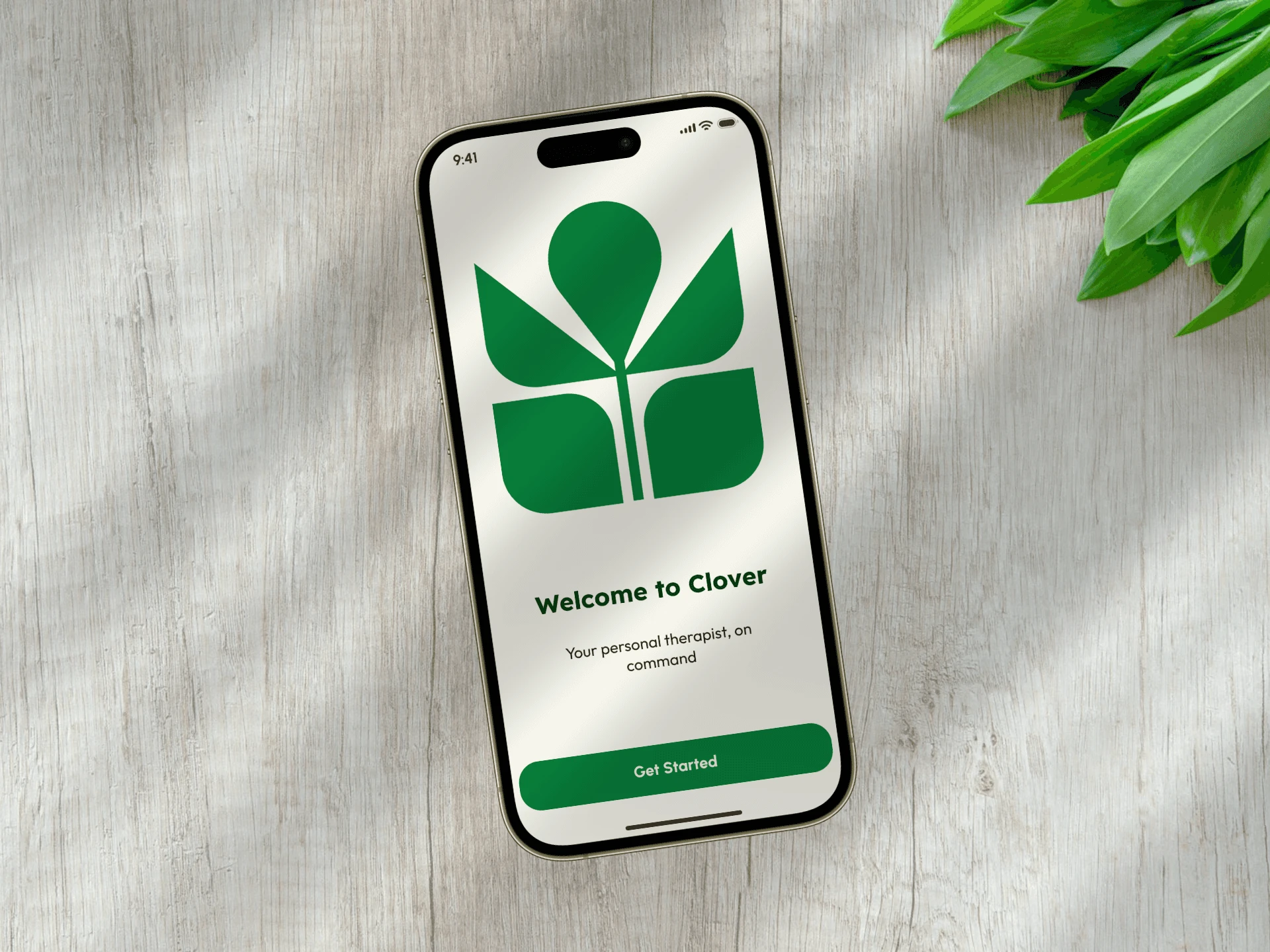
AI mental health mobile app splash screen
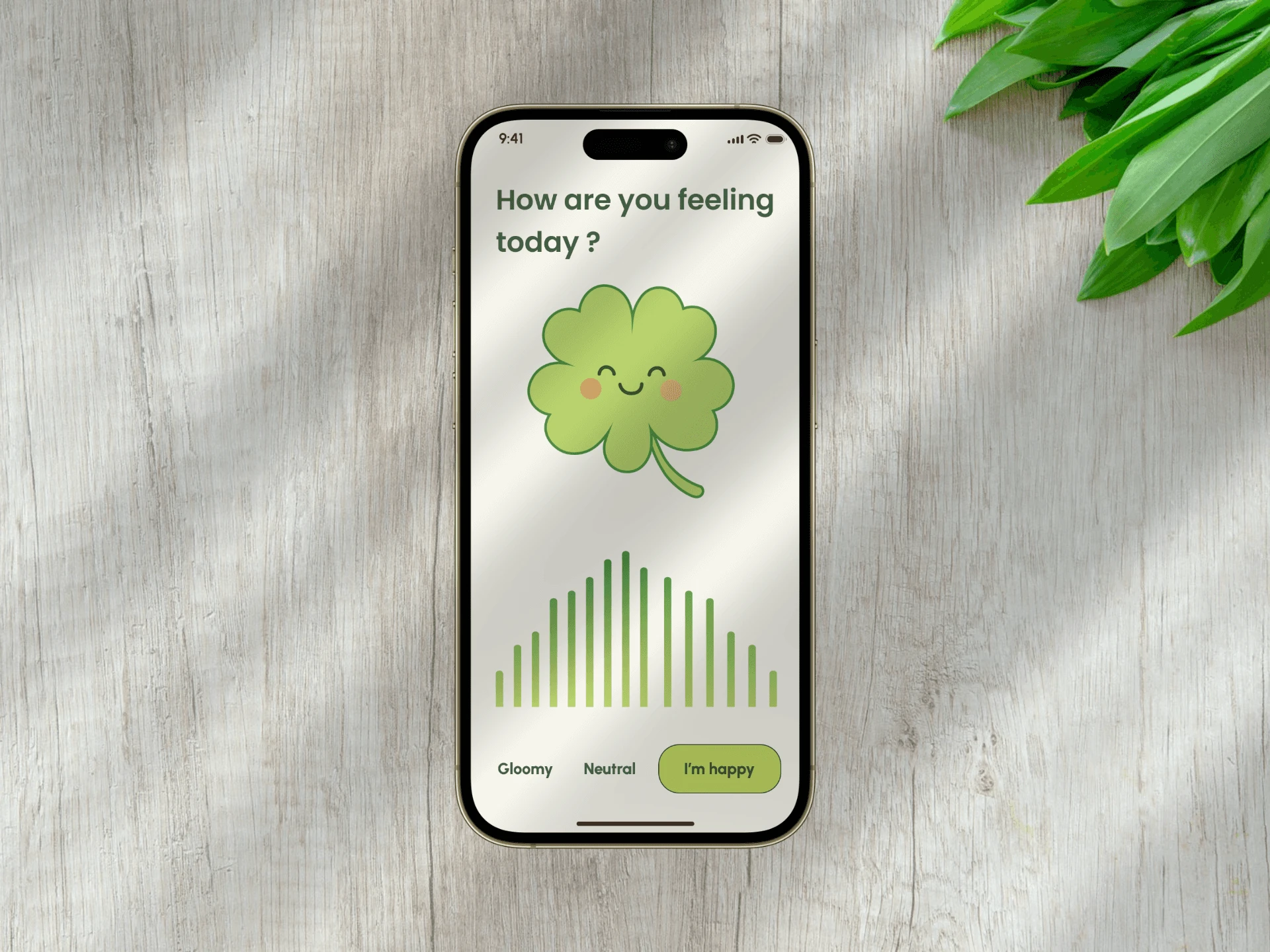
AI mental health mobile app tracker screen
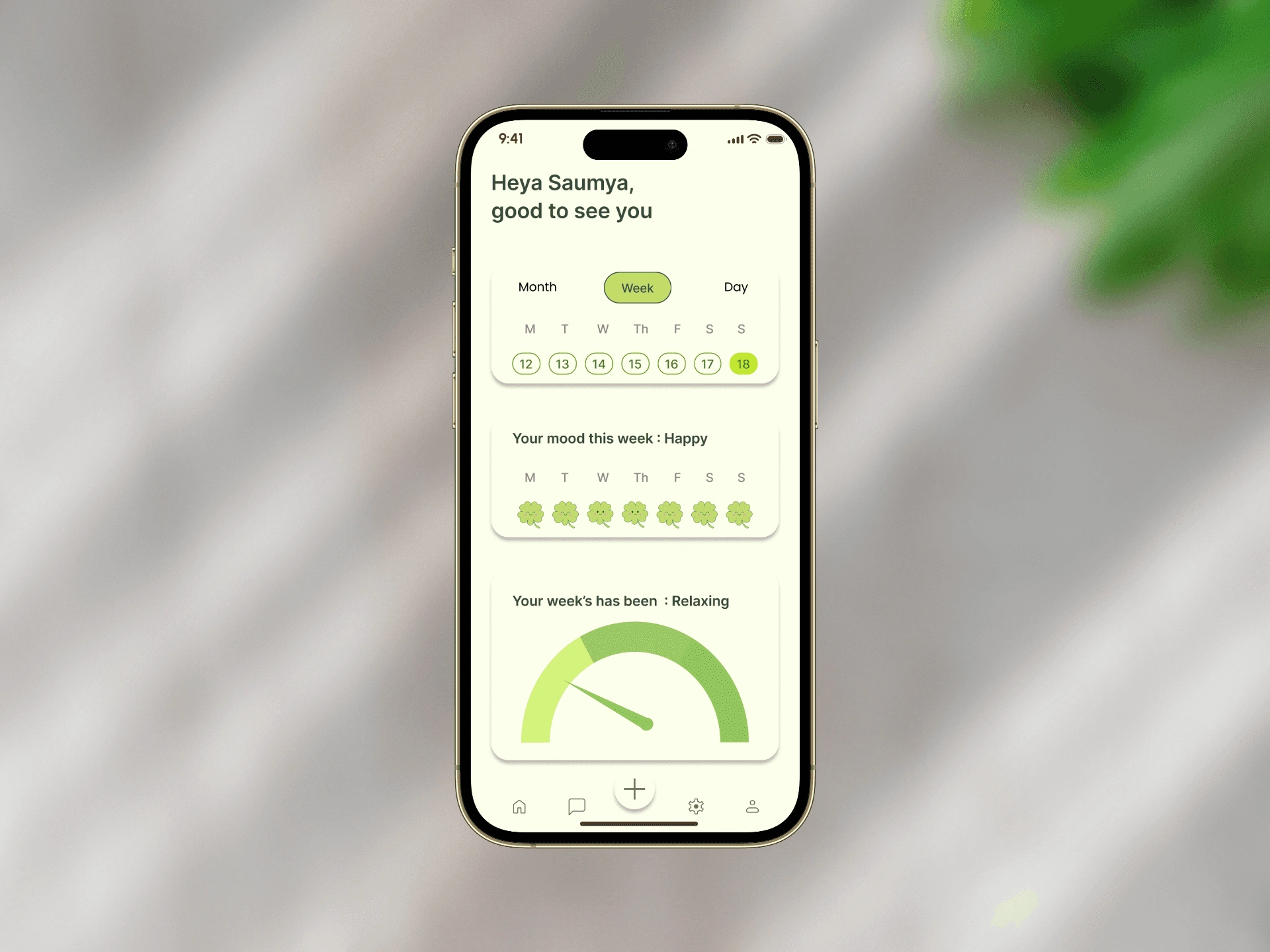
AI mental health mobile app insights dashboard screen
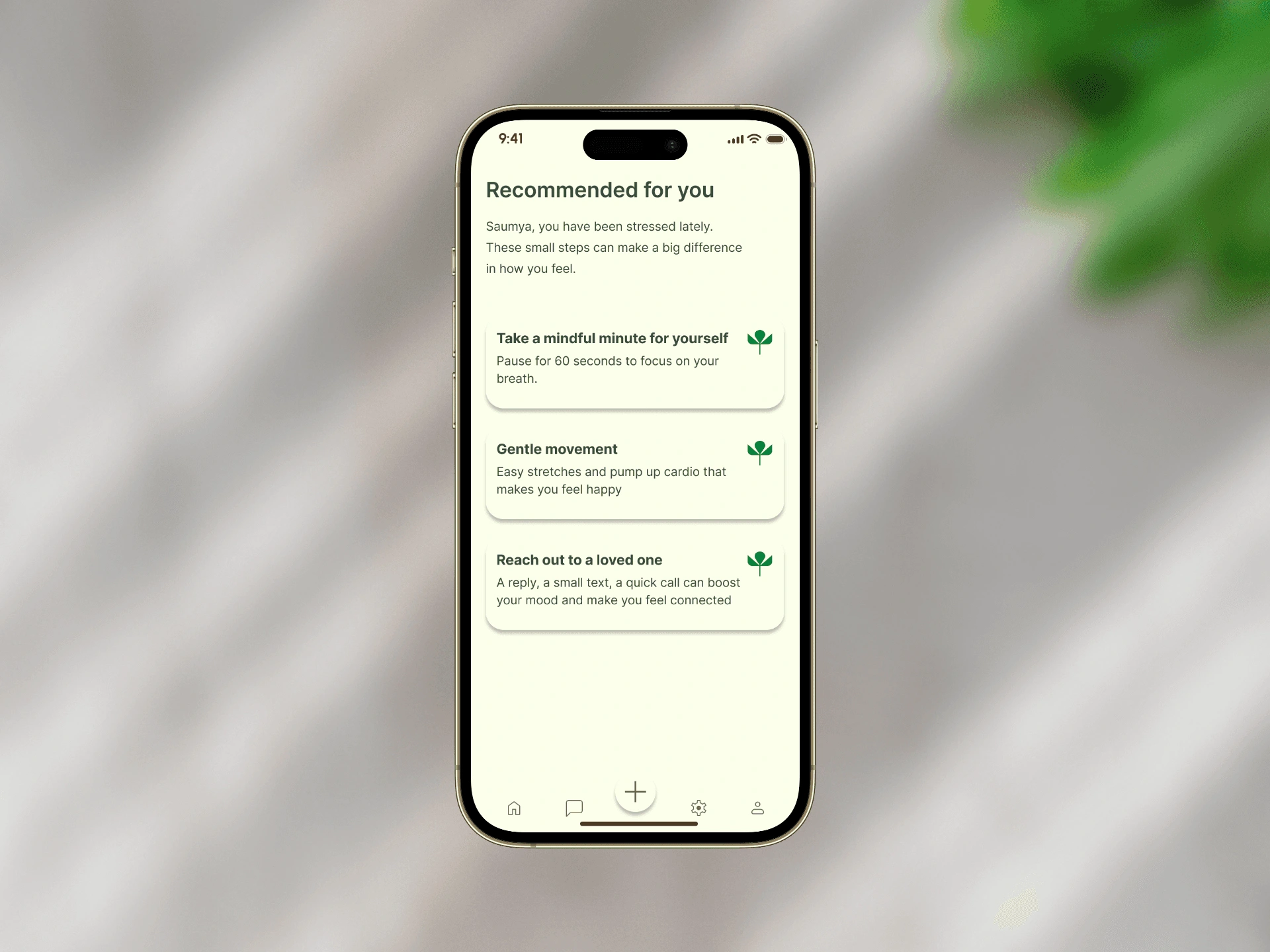
AI mental health mobile app personalised insights screen
A typical flow might look like this:
A user logs feeling “anxious” in the morning → Clover notices this pattern has repeated for three days → it suggests a five-minute breathing exercise followed by a reflective journal prompt later in the day → after the activity, the app asks, “Was this helpful?” → over time, Clover learns what works best for that individual.
The Role of AI
What differentiates Clover is its adaptive engine. Instead of static “coping suggestions,” Clover:
Learns from behaviour (whether the user completes an activity).
Tracks long-term trends (recurring patterns of low mood, anxiety, or fatigue).
Adjusts recommendations accordingly (e.g., if journaling proves unhelpful, Clover shifts toward mindfulness or physical activity prompts).
For startup founders, this adaptive loop is key: it increases engagement, builds retention, and offers a clear competitive advantage over apps with one-size-fits-all approaches.
Visual Language
The monochromatic palette was an intentional constraint. Too many colours can overwhelm users who are already navigating mental strain. By working with tonal variations of a single colour, the interface communicates calm and consistency. Typography and layout are clean, with enough breathing room for users to pause and reflect without distraction.
This restraint in design also highlights the content itself — the user’s emotions, patterns, and AI-tailored suggestions.
Value for Founders
Clover speaks to a growing opportunity in the U.S. market: AI-powered mental health support that feels both personal and trustworthy.
Differentiation: While competitors like Sphera market themselves as emotional tracking and journaling apps, Clover focuses on adaptation - the AI learns and evolves alongside the user.
Engagement: Personalisation drives retention; users are more likely to return when they feel the system “knows” them.
Scalability: The adaptive model can expand into partnerships with therapists, insurers, or wellness platforms.
Ethical Trust: Clover’s minimal design reinforces safety and privacy, avoiding gamified or exploitative elements.
Like this project
Posted Oct 11, 2025
Designed Clover, the mobile app for an AI mental health startup with adaptive recommendations and a calming design.
Likes
1
Views
8
Timeline
Oct 1, 2025 - Oct 7, 2025
Clients

Clover





